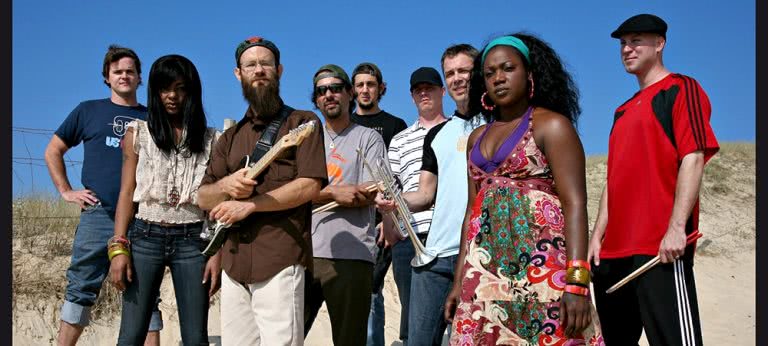1 .Growing Up
I grew up in a very musical household. My father was a jazz piano player who was constantly playing LPs in the family room; Miles Davis, Duke Ellington, Count Basie, Thelonious Monk et cetera. As a young child, whenever I couldn’t sleep my father was there playing this jazz music and talking to me about the artists and their lives in music. In fact, my father and his quartet performed a series of concerts on the East Coast in the 1950s with Count Basie, and the performances would end with my father and Basie performing together on one piano. I feel this put a deep love of the foundation of jazz within my heart and showed me that it was a commitment to the music that drives the passion, not money or fame.
2.Inspirations
Of course Bob Marley is one of my all-time favourites. I can remember the first LP I ever owned as a kid was Rastaman Vibration, and I would spend years dissecting his music. I also remember The Beatles and their album Abbey Road, which my parents owned and listened to often; Led Zeppelin’s IV was a huge influence; and Pink Floyd’s The Dark Side Of The Moon. Today I find that people and cultures inspire me the most.
3.Your Crew
Groundation formed out of the jazz performance department at Sonoma State University in Northern California in 1996. From the first moments playing together in small jazz combos we felt a connection; Marcus Urani on piano, Ryan Newman on bass and Jason Robinson on saxophone. Our union is from a love of music that pushes boundaries and does not conform to the ways of ‘pop’ music and culture.
4.The Music You Make
The Groundation style is a fusion of sound. People say it’s John Coltrane meets Burning Spear, and I agree to some extent. Our sound is deeply rooted in roots reggae ‘one drop’ style like Bob Marley, but has these added elements of odd harmonic movements, polyrhythmic adventures, and long-form through composed arrangements. The studio albums are like a painting which you hang on the wall and admire every day, and each time you look into it you find something new. However, the live performance is a once-in-a-lifetime experience, something never to be repeated, and it is meant to be for the people who are there experiencing the moment.
5.Music, Right Here, Right Now
The music scene today is dominated by pop culture. It’s no longer the strength of the music that pushes through, it’s your image and publicist that markets you to the masses. It’s producers bringing in people who really are not singers or musicians and with all the modern-day tools they can make anyone sound great. The music scene like our life today is plastic; McDonald’s sells the most food in America because it costs nothing and it is engineered to taste amazing, but it has zero nutritional value. The biggest obstacle to overcome is to push through the mass of music out there and get your message and sound to the people. Being in California and playing reggae music you have a strong underground support because the music has a message and it teaches people good things which will serve them well in the future.
Groundation plays withTom Frager atThe Hi-FionFriday February 7.


































